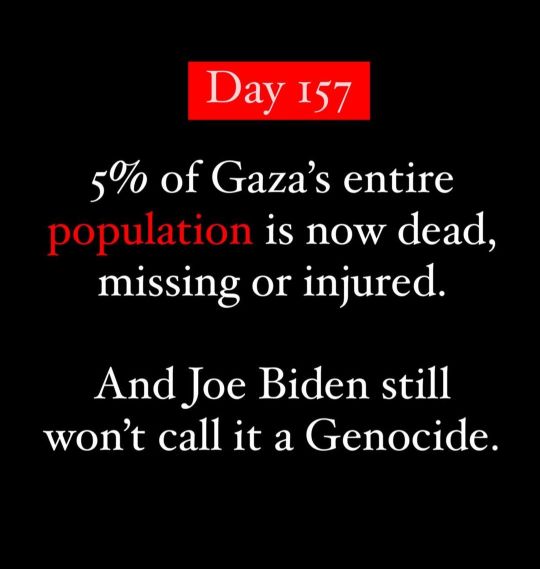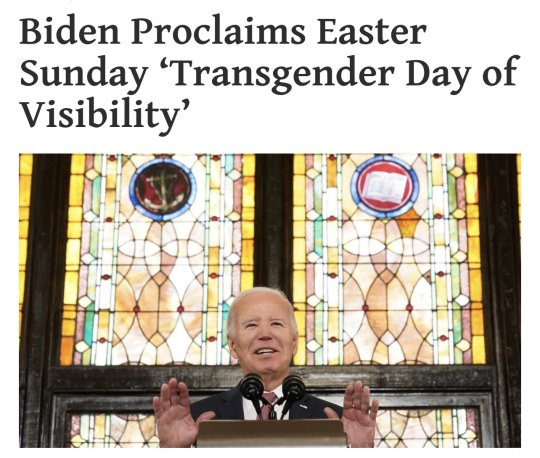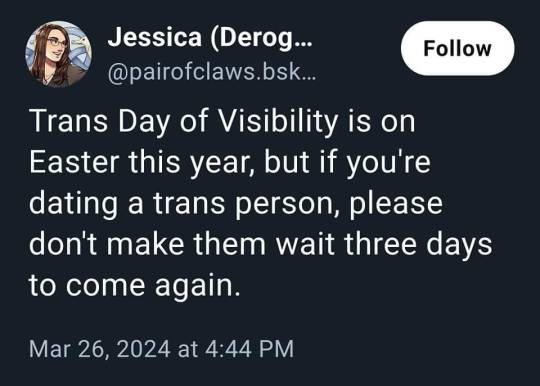#vote save america
Text


Friendly reminder to all those eligible: VOTE for your local Congresszco on Tuesday, November 8th.
Vote Save America resources here.
And if you need some inspo, here’s my little love story about Fezco running for Congress.
27 notes
·
View notes
Link
Help win the midterms! Let’s keep the House and Senate blue in ‘22 (plus state legislatures, governorships, and more). There are various causes and candidates and many ways to help; check it out.
2 notes
·
View notes
Text
Voter Turnout Does Matter. Kansas is proof. 🌾🌻
Sam Stein and Max Tani at West Wing Playbook at POLITICO had this to say about the landslide defeat of the Kansas anti-abortion measure on Tuesday. (emphasis added)
There’s also data to suggest that while reproductive rights groups succeeded in Kansas by bringing in more moderate-minded voters, they also scored big by juicing turnout, presumably among the progressive minded and traditionally apolitical. There was a massive spike in new voter registrants in the state after the Dobbs decision was leaked, which contributed to the 900,000-plus turnout on Tuesday.
When pro-democracy people register and vote instead of just complaining about the current situation, good things happen.
People in Kansas waited in line in +100° F (37.8° C) heat to vote down the Republican-inspired amendment. Commit to vote in 2022 no matter what the weather is. I will vote in the middle of a hurricane if necessary.
Yes, Republicans are trying to make it difficult to vote. They think they can easily discourage progressives by abolishing the pandemic election measures which improved accessibility. But remember that FDR won four times in a row when there was no early voting and very little absentee voting. So let the MAGA crowd be shocked when we manage to vote anyway and defeat them the way the Kansas anti-abortion amendment was crushed.
Save Your State 2022 - Vote Save America
Republicans thrive on low turnout elections. Vote in the 2022 midterms and make them very disappointed in early November.
#register and vote#voter turnout#kansas#abortion#anti-abortion amendment#the sanctity of reproductive freedom#make republicans sad#when you vote you win#election 2022#midterm elections#vote save america
2 notes
·
View notes
Text
Saving Democracy One Vote at a Time -- Getting Out The Vote in 2024
Voting is our super power. Registering people to vote is amplifying our power. Find out how you can help save democracy by helping to get the vote out in 2024!
SUMMARY: Today, we delve into the state of democracy, highlighting the rise in violent rhetoric, escalating real violence, and the erosion of democratic values. However, we also provide two key actions individuals can take to combat authoritarianism and strengthen democracy. Firstly, we emphasize the power of voting, exploring how each vote is integral to the democratic process. Secondly, we…

View On WordPress
#Authoritarianism#Democracy#Election 2024#Fringe#Get Out The Vote#Joe Biden#Michelle Obama#Pod Save America#Rock the Vote#Save Democracy#Super Power#The League of Women Voters#Tim Snyder#Violent Rhetoric#Vote Save America#Voter Registration#Voting#When We All Vote
1 note
·
View note
Text
Trump: “Now, If I don't get elected, it's gonna be a bloodbath. It's going to be a bloodbath for the country.”
Wake Up America. This isn’t a fucking game. Vote to end the nightmare that is Trump.
#vote#democracy#democrats#trump is a threat to democracy#abuser#GOP#save america#november 2024#abortion#womens rights#news#women
469 notes
·
View notes
Text
OBAMA OPENLY ENCOURAGES ILLEGALS TO VOTE
💩👿💩
#obama#voting#deep state’s plan to destroy America exposed#crimes against humanity#dirty politics#corrupt politicians#corruption#puppets#clowns#bad actors#criminals in power#lunatics#psychopaths#sociopaths#Jewish mafia#save the children#defend human rights#fight for justice#speaktruth#standup#speak up#truth#please share#wwg1wga
444 notes
·
View notes
Text
White supremacist voted out of office in Oklahoma. If it can happen there, it can happen anywhere.
#oklahoma#vote blue#vote democrat#democrats#vote blue to save democracy#vote biden#vote blue 2024#democracy#social democracy#democratic socialism#democrats now socialism later#vote blue to save america#vote democratic#vote blue all the way down the ticket
89 notes
·
View notes
Text
if you are still going to vote for biden, and are pressuring and guilting others, especially poc, into voting for biden, you are complicit in the genocide of Palestinians. directly.
from Khaled Beydoun, 12/Mar/2024:

#joe biden#vote blue#democrats#genocide joe#america is committing genocide#israel is committing genocide#this is genocide#palestine#free palestine#gaza#free gaza#from the river to the sea palestine will be free#i stand with palestine#rafah#save rafah#jerusalem#west bank#human rights#social justice#palestinian lives matter#us elections#us presidential election#us politics
102 notes
·
View notes
Text
If your state makes it hard for you to vote… that means your vote is even more important because that is a fear tactic on their part.
Go to the polls. Let your voice be heard.
Democracy is on the ballot in more ways than one right now.
Don’t let them intimidate you.
As a United States citizen, you have a right to vote.
Practice your right.
610 notes
·
View notes
Text
youtube
THIS MIGHT BE OUR LAST ELECTION!
Democracy will not come
Today, this year
Nor ever
Through compromise and fear.
I have as much right
As the other fellow has
To stand
On my two feet
And own the land.
I tire so of hearing people say,
Let things take their course.
Tomorrow is another day.
I do not need my freedom when I'm dead.
I cannot live on tomorrow's bread.
Freedom
Is a strong seed
Planted
In a great need.
I live here, too.
I want freedom
Just as you.
Poem by Langston Hughes, 2003
#democracy#vote 2024#go vote#vote biden#vote blue#please vote#get out the vote#trump is a threat to democracy#save our democracy#dictatorship#america#Youtube#us politics#fuck donald trump#maga morons#never trump#traitor trump#vote democrat#democrats
21 notes
·
View notes
Text
instagram
I have NEVER BEEN MORE EMBARRASSED TO BE AN AMERICAN THEN I AM RIGHT NOW. Dear Falasteen please know that the majority of Americans want a ceasefire too. But then again America was founded on genocide so it will continue that legacy. Ceasefire now is the only option, this was never a war it’s always been a genocide and to deny it is to deny the truth. Palestine/Falasteen you have my heart, I am not Palestinian but my heart bleeds for your country and those loved ones that have been cruelly taken from you and who you can’t bury with dignity. I am so sorry Falasteen/Palestine.
#falasteen#palestine#save palestine#save gaza#video#free gaza#gaza genocide#palestinian genocide#free palestine#ceasefire#ceasefire now#america we fucked up should’ve voted to save humanity#Instagram
38 notes
·
View notes
Text
Republican talking heads are trying to blame Biden for Easter moving to trans visibility day, which has been celebrated on March 31st since 2009.
Trans Day of Visibility and Easter also coincided in 2019, when Donald Trump was president. Obviously, he will be issuing his sincere apology any moment now.


See, while calendar days do not move, Easter moves to follow the full moon, passover, and the days of the week. Passover is in April this year, but Easter is falling a month early as Christianity doesn't account for Hebrew leap years. So really, it's the Catholic Crutch that decided to combine the two holidays celebrated by finding and cracking pastel eggs.
They're also claiming to be upset about the language requesting artwork not be overly religious or political. Language that has not changed for the last 45 years, and was in place when Trump was President.



Fox and Trump are understandably upset that Dark Brandon has such sway over the calendar, the Catholic church, and, of course, the literal phases of the moon. But maybe if Pope Francis trusts him with such important decisions, we should too.

#Easter#transgender visibility day#trans visibility day#go crack an egg#lgbt#lgbtq#pod save america#original content#Biden is literally catholic so they're following the anti Christ who cheated on 3 wives and would probably burst into flame in a church.#dump trump#vote blue
16 notes
·
View notes
Text
no like thank god i didn’t vote last election i don’t think i could live w myself after voting in the guy who’s all in on the genocide of palestinians. this is war crime shit and biden is fucking evil & im glad i didn’t have anything to do with him being elected
#& ppl are like ‘oh you can’t just not vote bc the candidates aren’t perfect’#like in america ‘not perfect’ literally fucking means ‘will jump at any opportunity for a genocidal total war’#so Yeah i think i will abstain from voting any of these ghouls into power. just to save my conscience#.txt
35 notes
·
View notes
Text
Look at this face.
Via Jabari Jones
#donald trump#maga#criminal#grifter#republicans#gop#carnival barker#fraud#vote democrat#vote blue#joe biden#biden harris 2024#save democracy#america#lock him up!
23 notes
·
View notes
Text
“A lack of trust in our leadership and our major institutions might turn out to be the fulcrum upon which the 2024 elections will turn . . .”
#leadership#extremism#democracy#education#save america#government#joe biden#accountability#claudine gay#corruption#election 2024#fear#higher education#personal responsibility#politics#protest#voter anger#voting
13 notes
·
View notes
Text
The crisis of the world - 1933 and 2023
Thomas Weber
Memorise content
What does 1933 teach us? If we understand National Socialism as a form of illiberal democracy, we can see that today's variants could easily slide into something worse. Then as now, exaggerated perceptions of crisis play an important role.
In times when several major crises are brewing into what is perceived as an existential poly-crisis, fears of the political consequences of this perception spread. The most spectacular case of the collapse of a democracy - the collapse of the Weimar Republic in January 1933 - is therefore repeatedly scrutinised in the hope of discovering lessons for the present.
A prime example of this in recent years is what has been happening in the United States: since the New York Times columnist Roger Cohen greeted his readers with "Welcome to Weimar America" in December 2015, "Weimerica" has developed into a veritable genre of opinion pieces and books. After the attack on the Capitol in Washington in January 2021, the son of an Austrian SA man also used his fame as a Hollywood actor and former governor of the US state of California to record a video message to the world: In it, Arnold Schwarzenegger spoke about his father and drew direct comparisons between the Reichspogromnacht, the Nazi anti-Jewish pogrom of 9 November 1938, and the situation in the US in early 2021. to resolve the footnote[3]
It is therefore not surprising that Adolf Hitler is more dominant in public discourse today than he was a generation ago. Between 1995 and 2018, the frequency with which Hitler was mentioned in English-language books rose by an astonishing 55 per cent. In Spanish-language books, the frequency even increased by more than 210 per cent in the same period. To break up the footnote[4] This increase is a result of both a growing perception of crisis and another phenomenon: an awareness of how much the world we live in today can be traced back directly and indirectly to the horrors of the "Third Reich" and the Second World War.
But the world that emerged in 1933 is not invoked everywhere in order to understand and interpret today's situation. Strangely enough, one country in the heart of Europe has taken a different direction: Germany itself. Here, the frequency with which Hitler was mentioned in books fell by more than two thirds between 1995 and 2018. The same trend applies to other terms that refer to the darkest chapter of Germany's past, such as "National Socialism" and "Auschwitz". To resolve the footnote[5] However, a declining interest in National Socialism should not lead to the false assumption that today's Germany is less strongly characterised by the legacy of the "Third Reich" and the horror that the Germans spread throughout Europe. The legacy of National Socialism defines who the Germans are, and has done so since the day Hitler was appointed Reich Chancellor in January 1933.
New "special path"
In Germany, there was probably not so much explicit publicity about National Socialism because it was believed that the country had learnt from the past and built an exemplary political system with a corresponding society that had internalised the lessons of National Socialism. The prevailing narrative of the early Berlin Republic was that Germany had taken a "special path" towards dictatorship and genocide in the 19th and early 20th centuries. With reunification in 1990, however, the country had finally left this path and had fully arrived in the West. To resolve the footnote[6] According to this interpretation, the Berlin Republic was a new player in international politics, working side by side with its partners in Europe and the world to secure peace and stability at home and abroad.
However, the varying frequency with which Hitler, Auschwitz and National Socialism are referred to in books in Germany and abroad shows that Germany did not abandon its special path in 1990, but rather embarked on a new one. Germany's actual special path is that of its second (post-war) republic, which was founded in 1990 and, if one follows the argumentation of journalist and historian Nils Minkmar, collapsed in the wake of Putin's war of aggression against Ukraine. Germany's second republic, writes Minkmar, "took a holiday from history, was finally able to enjoy the moment like Faust and, also like Faust, made a pact - with Putin and with bad consequences". To resolve the footnote[7] However, Germany's holiday from history came to an abrupt end with the Russian invasion of Ukraine on 24 February 2022. In the words of Federal Chancellor Olaf Scholz: "24 February 2022 marks a turning point in the history of our continent." To resolve the footnote[8] Scholz is right when he speaks of a turning point, but it does not primarily concern "our continent", but first and foremost his own country. The Russian invasion of Ukraine made many Germans suddenly aware of the realities of international politics that had been present to Germany's neighbours for some time.
The Faustian pact was not born of malice - Germany's second republic had been founded and governed with the best of intentions. Rather, a certain short-sightedness had prevailed that prevented many Germans from seeing what many of their international partners had long recognised after Russia's previous invasions or the shooting down of MH17 - the Malaysia Airlines plane that was shot down by a Russian missile in Ukrainian airspace on its way from Amsterdam to Kuala Lumpur in July 2014. And this short-sightedness is closely linked to the normative conclusions that the protagonists of the Second German Republic had drawn from the country's experience with National Socialism, which differed quite drastically from those drawn by other countries.
As a result, many Germans relied on soft power and had little interest in hard power - without realising that the former is just hot air if it is not accompanied by the latter. At the same time, many failed to recognise that Putin's aggressive approach since the day he took office was in line with earlier phases of Russian history. This is also reflected in a sharp decline in references in German-language publications to terms associated with the dark side of Russia's past, such as "Gulag", "Stalin", "Prague Spring" or "popular uprising". Dissolving the footnote[9] In English-language books, the number of mentions of the terms "Stalin" and "Prague Spring" remained relatively constant between 1995 and 2018, while mentions of the "Gulag" actually increased significantly. Resolution of the footnote[10]
The illusions that were harboured in Germany ultimately stood in the way of both even more successful European integration and the creation of an even more durable security and peace architecture. Minkmar therefore believes that a third republic must emerge from the ruins of the second: one that takes a less short-sighted view of the world around it and leaves behind the "naivety" of thinking about the world. To resolve the footnote[11] It is therefore necessary to work out lessons from the "Third Reich" for the third republic.
Historical misunderstandings
However, the myopic view of the past is not limited to Germany. In fact, many of the lessons learnt worldwide from 1933 for crisis management in the 2020s are based on historical misunderstandings. For example, although there are countless books about the "Third Reich" and its horrors, in many cases, and without realising it, they reproduce clichés dating back to Nazi propaganda minister Joseph Goebbels, or they portray Hitler and the National Socialists only as madmen driven by hatred, racism and anti-Semitism. However, such approaches will never understand why so many supporters of National Socialism saw themselves as idealists. And they will not be able to explain why, according to Hitler, reason, not emotion, should determine the actions of National Socialism. On the resolution of the footnote[12]
A reductionist approach to the question of what characterised Hitler and other National Socialists is dangerous. It tempts us to look for false warning signs in today's world and to search for Hitler revenants and National Socialists in the wrong places. We are therefore recommended to read Thomas Mann's essay "Brother Hitler" from 1938, in which he portrays the dictator as a product of the same traditions in which he himself had grown up. In doing so, he opens our eyes to the realisation that it is not the angry crybabies, but above all people "like us" who are open to dismantling democracy in times of crisis. In fact, as soon as we take the ideas of the National Socialists seriously, it becomes disturbingly clear that many people supported these policies in the period from the 1920s to the 1940s for almost the same reasons that we so vehemently reject National Socialism today - not least the conviction that political legitimacy should come from the people and that equality is an ideal worth fighting for.
It is therefore important to dispel various misconceptions about the death of democracy in 1933 that are still taught in German schools today, including the idea that the seeds of Weimar's self-destruction were sown as early as 1919, that the "unstable Weimar constitution (.... ) ultimately led to the self-dissolution of the first German democracy", that "coalitions capable of governing [became] impossible because there were too many splinter parties", On the dissolution of the footnote[13] that the rise of Hitler resulted from the strength of the German conservatives, that the world economic crisis played the decisive role in the death of German democracy, that Germans supported the National Socialists, because they longed for the return of the authoritarian state of the past and rejected democracy in any form, or that the actions of the National Socialists did little to bring Hitler to power - which is evident, for example, in the tendency to speak only of a "transfer of power" in relation to the events of 1933 and not of a process that was both a "transfer of power" and a "seizure of power". On the resolution of the footnote[14]
The beliefs of the National Socialists and the appeal of their ideas cannot be understood if we do not take seriously the central apparent contradictions at the core of National Socialism, namely that the National Socialists destroyed democracy and socialism in the name of overcoming an all-encompassing, existential mega-crisis and creating a supposedly better and truer democracy and socialism. The National Socialists preached that all power must come from the people, not out of insincere and opportunistic Machiavellianism, but because they believed it. The promise of a National Socialist illiberal "people's community democracy" as a collectivist and marginalising concept of self-determination was widely accepted and promised to overcome what was supposedly the greatest crisis in centuries. This made 1933 possible and ultimately brought the world to the gates of hell.
So if we understand National Socialism as a manifestation of illiberal democracy, we see that today's variants of illiberal democracy could very easily slide into something much worse in times of crisis than we are currently experiencing in many places around the world. If we refrain from a reductionist account of National Socialism, we will recognise that the parallels between the present and the past lie primarily in the dangers posed by illiberal democracy and the general perception of crisis.
Furthermore, if we understand National Socialism as a political religion, we can understand why Germans followed its siren song en masse. Hitler's political religion demanded a double commitment from converts: firstly, to National Socialist orthodoxy - adherence to 'correct' beliefs and the practice of rituals - and secondly, to National Socialist orthopraxy - the 'ethical' behaviour prescribed by orthodoxy. In this way, acts of violence and war against internal and external "enemies of the people" were given a moral and even heroic significance - because they supposedly served a "higher" purpose, the good of one's own "national community". The belief systems of National Socialism are therefore inextricably linked to the violence and horrors of the "Third Reich". In other words, while it may well be true that liberal democracy brings with it a "peace dividend", illiberal democracy - at least in its totalitarian, messianic incarnations - can easily generate a "genocide and war dividend" if people believe they can overcome an existential crisis in this way.
Just as the National Socialist mindset should be taken seriously as a key driver of violent and extreme behaviour, the National Socialists themselves should also be understood as political actors with a clear plan for the future. Although it often looked as if they were merely reacting to others, it was precisely this reactive character of National Socialist behaviour that was a tactic - and a very successful one at that - that explains not only the developments in 1933, but also the dynamics of twelve years of Nazi rule. The path from the seizure of power to the settlement policy in the East, to total war and to a war policy of extermination and genocide was by no means long and tortuous - in the self-perception of its actors, it was the path to overcoming an existential polycrisis.
What does 1933 teach us?
The way in which the National Socialists succeeded in seizing and consolidating power and ultimately pursuing radical policies has more in common with the cunning of Frank Underwood, the fictional US president from the Netflix series "House of Cards", than with many of the portrayals that question whether their rise was coolly calculated. The political style and the illusion game of the National Socialists, the undermining and destruction of norms and institutions as well as the pursuit of a hidden agenda are increasingly becoming characteristics of politics in our time as well. Understanding the year 1933 should therefore help us to better understand today's challenges.
We therefore need a defensive democracy with strong guard rails in order to be able to counter the perception of an existential polycrisis. This includes strong party-political organisations that - unlike in daydreams of the transformation of parties into "movements" - prevent the internal takeover by radicals. Crucially, strong party structures also provide a toolkit to deal with polarised societies by both representing and containing divisions. The behaviour of conservative parties is particularly important here. German conservatism played a central role in the fall of Weimar democracy, but in a counter-intuitive way, not through its strength but through its weakness and the fragmentation of its organisations.
However, guard rails offer little or no protection if they are poorly positioned. Thus, a look beyond Germany reveals that in trying to make our own democracy weatherproof and crisis-resistant, we may have more to learn from cases where democracy survived in 1933 than from the death of democracy in Germany. The Netherlands, for example, had established a resilient political structure, or a defencible democracy avant la lettre, capable of dealing with a wide range of shocks to its system and responding flexibly to crises. As a result, the Dutch did not need to anticipate the specific threats of 1933, as their crisis prevention and response capacities were large enough to avoid the establishment of a domestic dictatorship. The comparison also shows that some supposed guard rails of today's democracy in Germany - such as the five per cent hurdle in elections - are largely useless and only appear to offer security.
The problem of looking at specific cases of the collapse of democracy, including the German case in 1933, harbours a danger: that the most important variables are insufficiently recognised and too narrow conclusions are drawn. The exact historical context of the collapse of a political order will always vary, as will the perception of an existential polycrisis and its political consequences. It therefore makes sense to identify states and societies from the past that were resilient to the widest possible range of shocks. Or as historian Niall Ferguson puts it: "All we can learn from history is how to build social and political structures that are at least resilient and at best antifragile (...), and how to resist the siren voices that propose totalitarian rule or world government as necessary for the protection of our unfortunate species and our vulnerable world." To resolve the footnote[15]
Nevertheless, the fall of the Weimar Republic in 1933 is a warning of where uncontained perceptions of crisis can lead. After all, it was Hitler's polycrisis consciousness and the associated individual and collective existential fear that formed the core of the emergence of Hitler's political and genocidal anti-Semitism. Added to this was the identification of the Jews with this crisis and the implementation of this identification in a programme of total solutions in order to "protect" themselves permanently. To resolve the footnote[16]
Perhaps the most important warning that the past century holds for us is that the biggest and most terrible crises in the world only arise when we try to contain real or perceived crises headlessly and without moderation. To resolve the footnote[17]
This article is a revised extract from Thomas Weber (ed.), Als die Demokratie starb. Die Machtergreifung der Nationalsozialisten - Geschichte und Gegenwart, Freiburg/Br. 2022.
Footnotes
On the mention of the footnote [1]
Roger Cohen, Trump's Weimar America, 14 Dec 2015, External link:http://www.nytimes.com/2015/12/15/opinion/weimar-america.html.
For the mention of the footnote [2]
Niall Ferguson, "Weimar America"? The Trump Show Is No Cabaret, 6 Sept. 2020, External link:http://www.washingtonpost.com/business/weimar-america-the-trump-show-is-no-cabaret/2020/09/06/adbb62ca-f041-11ea-8025-5d3489768ac8_story.html.
On the mention of the footnote [3]
Cf. Thomas Weber, Trump Is Not a Fascist. But That Didn't Make Him Any Less Dangerous to Our Democracy, 24.1.2021, external link:https://edition.cnn.com/2021/01/24/opinions/trump-fascism-misguided-comparison-weber/index.html.
On the mention of the footnote [4]
Cf. Google N-gram analyses for "Hitler" and "Auschwitz" in English and Spanish, created on 10 August 2022: External link:https://t1p.de/ngramspanish and External link:https://t1p.de/ngramenglish.
For the mention of the footnote [5]
Cf. Google N-gram analyses for "Hitler", "Auschwitz" and "National Socialism" in German, created on 10 January 2022: External link:https://t1p.de/ngramgerman.
On the mention of the footnote [6]
Cf. Heidi Tworek/Thomas Weber, Das Märchen vom Schicksalstag, 8 November 2014, External link:http://www.faz.net/13253194.html.
On the mention of the footnote [7]
Nils Minkmar, Long live the Third Republic, 10 May 2022, External link:http://www.sueddeutsche.de/projekte/artikel/kultur/e195647.
Mention of the footnote [8]
Government statement by Federal Chancellor Olaf Scholz, 27 February 2022, External link:http://www.bundesregierung.de/breg-de/suche/regierungserklaerung-von-bundeskanzler-olaf-scholz-am-27-februar-2022-2008356.
Mention of the footnote [9]
Cf. Google N-gram analyses for "Stalin", "Gulag", "Prager Frühling" and "Volksaufstand" in German, created on 10 August 2022: External link:https://t1p.de/ngramstalingerman and External link:https://t1p.de/ngramgulagpfvgerman.
For the mention of the footnote [10]
Cf. Google N-gram analyses for "Stalin", "Gulag" and "Prague Spring" in English, created on 10 August 2022: External link:https://t1p.de/ngramstalinenglish and External link:https://t1p.de/ngramgulagpsenglish.
On the mention of the footnote [11]
See Minkmar (note 7).
On the mention of the footnote [12]
In his first known written anti-Semitic statement - the so-called Gemlich letter of 1919 - Hitler rejected "anti-Semitism on purely emotional grounds" and advocated an "anti-Semitism of reason". Cf. Hitler to Adolf Gemlich, 16 September 1919, reproduced in: German Historical Institute Washington DC, German History in Documents and Images, n.d., external link:https://germanhistorydocs.ghi-dc.org/pdf/deu/NAZI_HITLER_ANTISEMITISM1_DEU.pdf.
On the mention of the footnote [13]
Cf. Fabio Schwabe, Gründe für das Scheitern der Weimarer Republik, 12 March 2021, external link:http://www.geschichte-abitur.de/weimarer-republik/gruende-fuer-das-scheitern.
On the mention of the footnote [14]
Cf. Hans-Jürgen Lendzian (ed.), Zeiten und Menschen. Geschichte, Qualifikationsphase Oberstufe Nordrhein-Westfalen, Braunschweig 2019, pp. 237-264; Ulrich Baumgärtner et al. (eds.), Horizonte. Geschichte Qualifikationsphase, Sekundarstufe II Nordrhein-Westfalen, Braunschweig 2015, pp. 242-270.
On the mention of the footnote [15]
Niall Ferguson, Doom. The Politics of Catastrophe, London 2022, p. 17, own translation.
On the mention of the footnote [16]
Cf. Thomas Weber, Germany in Crisis. Hitler's Antisemitism as a Function of Existential Anxiety and a Quest for Sustainable Security, in: Antisemitism Studies (n.d.).
On the mention of the footnote [17]
Cf. Beatrice de Graaf, Crisis!, Amsterdam 2022.
#Creative Commons Licence#CC BY-NC-ND 3.0 DE#Thomas Weber#bpb.de#Germany 1933#weimar#weimar America#stop violence#stop trump#save our democracy#vote democrat#vote blue#please vote#Weimerica#Roger Cohen#read more
9 notes
·
View notes